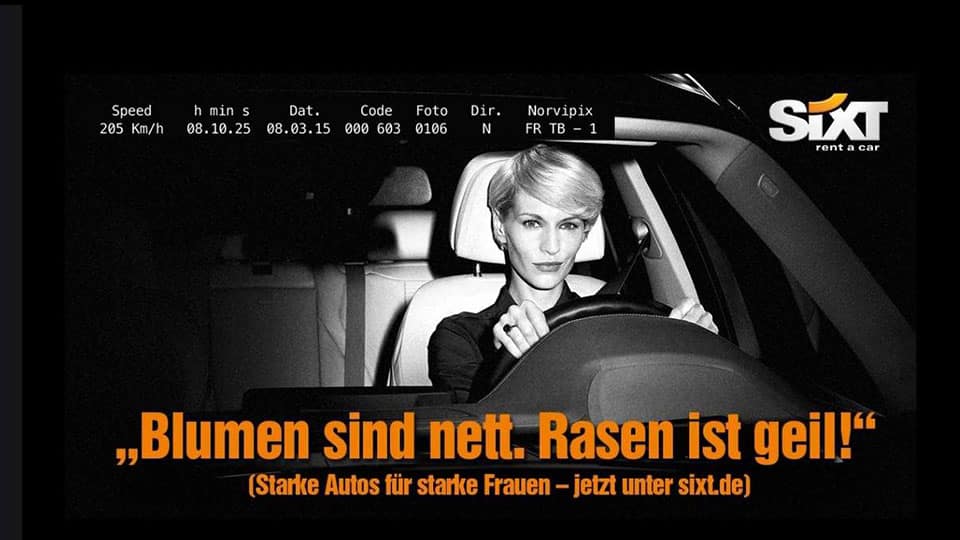It doesn’t get any better downwards, there is talk of women taking their brother or father with them to buy a new car. And this is in view of the fact that in Germany about a quarter of all vehicle owners are now women. While they are generally satisfied with the technical model offering, suggestions for improvement are aimed at greater practicability. Wishes also remain unfulfilled with regard to the communicative, social approach in advertising, sales and in the workshop.
The age distribution of female vehicle owners shows that women from the ‘Baby Boomer’ generation and women from the ‘Golf generation’ have the highest rates of owning their own vehicle. The steadily increasing proportion of women holding a driver’s license also proves the trend that the purchase of cars is foreseeably a matter of course.
This should be taken to heart in the marketing and sales offices of the manufacturers and the needs of female drivers should not be ignored. After all, they show that old prejudices do not apply: women are interested in cars, and they see opportunities to improve the car and, above all, car sales and workshop services for them.
The results of various surveys show that the mostly working women surveyed use their cars particularly frequently. At the same time, the joy of the car and the mobility associated with it is very pronounced among women. And these women regularly buy new cars, decide predominantly alone on the chosen model and trust themselves to have a significantly higher level of competence and a confident judgement when comparing the importance of individual parameters with that of the other female drivers surveyed.
Women’s demands are high
An evaluation of individual satisfaction according to the school grading scheme, as has been common for many years with the German Customer Barometer, shows that the women surveyed still perceive a lack of respect, empathy and honesty on the part of the salesperson. The women surveyed also react with dissatisfaction to the lack of female staff in the car trade.
Electric car marketing neglects women
An increased focus on women in the marketing of electric cars could probably significantly accelerate the spread of the alternative drive type. This is what researchers from the University of Sussex in England and the Danish University of Applied Sciences Aarhus have found out in a recent study.
According to the scientists, well-educated female car buyers are a potentially lucrative target group, as they have hardly been tapped so far. Their analysis has shown that women – compared to male drivers – usually show a greater awareness of environmental issues and fuel efficiency.
Women are the new China
Women make up half of the world’s population, and without them nothing works in the car business. “Women are the new China,” the then Daimler CEO Dieter Zetsche clairvoyantly recognized as early as 2015; if you are able to benefit from female customers as much as from male customers, the potential is much greater than that of the Middle Kingdom.
“Women are the fastest growing customer group in the world,” says Kerstin Heiligenstetter, adding that more than 80 percent of luxury spending in particular – including those for cars – is influenced by women. Heiligenstetter heads the “She’s Mercedes” initiative, a platform that specifically addresses women’s mobility requirements.
Women and the car: A success story from the very beginning
Our social change includes all social and economic areas of our society. This is also the case in the automotive industry, where six women and five men will be represented on the Supervisory Board of General Motors (GM). The CEO is a woman: Mary Barra. In addition to Renata Jungo Brüngger (Compliance), Britta Seeger is the second woman to join the eight-member Board of Management of Daimler AG as a member of the Board of Management.
And without the energetic women, there might be neither the Mercedes brand nor the Daimler Group today: It was Bertha Benz who proved in 1888 with her courageous 100-kilometer journey from Mannheim to Pforzheim that her husband Carl’s invention worked. It was also Lina Daimler who cared for Gottlieb, who had a heart condition, and kept his energy intact. In the end, it was Mercedes Jellinek, daughter of the Austrian merchant Emil Jellinek, whose first name registered the trademark “Mércèdes” in 1902.








